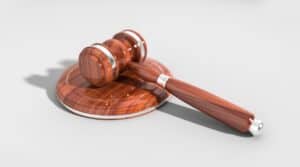Key Takeaways
- Understand practical steps to take immediately after a car accident.
- Know your legal rights and obligations following an accident.
- Learn how to manage insurance claims effectively.
Table of Contents
- Immediate Steps Following a Car Accident
- Assessing Personal and Property Damage
- Navigating the Legal Landscape
- Dealing with Insurance Companies
- Understanding Compensation Claims
- Finding Legal Assistance
- Tips for Preventing Future Accidents
Immediate Steps Following a Car Accident
After a car accident in Philadelphia, staying calm and taking immediate action to protect yourself and others is essential. Start by checking for injuries and calling 911 to report the incident. If feasible, relocate to a secure area to prevent additional risk. Take pictures and take notes at the scene, and give the other driver your contact information and insurance data. Later on, whether dealing with insurance claims or legal matters, this information may be crucial.
If you’re facing challenges with insurance or determining fault, consulting a motor vehicle accident lawyer in Philadelphia can be helpful. They can help you maneuver through the legal process, making sure your rights are protected and you receive fair compensation. Taking care of the aftermath quickly and seeking the appropriate assistance can significantly impact the effective resolution of the situation.
Assessing Personal and Property Damage
Once immediate safety is addressed, start evaluating the damage caused by the accident. Look for visible injuries and be aware of potential issues like whiplash, which might not manifest immediately. Visiting a healthcare professional, even for minor injuries, is advisable to ensure they are adequately documented and treated. Additionally, begin assessing property damage. Take detailed notes and photos of the damages to your vehicle and any other accident-related properties.
Keeping accurate records of medical treatments and repair estimates is crucial for insurance claims and potential legal proceedings. This documentation will help substantiate the extent and cost of damages when discussing compensation. It’s wise to maintain all related paperwork in an organized manner for easy access when needed.
Navigating the Legal Landscape
Comprehending your legal obligations and entitlements is essential for safeguarding yourself and others involved after a vehicle collision. Begin by prioritizing everyone’s safety and reach out to emergency services if necessary. Share key information such as names, contact numbers, and insurance details with the other driver. Capture images of the scene and record significant details like weather and road conditions. Inform your insurance provider without delay and present accurate information. Understanding your rights, including the ability to seek compensation for damages or injuries, can assist you in managing potential conflicts. It may be necessary to consult a legal expert if liability is ambiguous or if claims emerge. Remaining calm and well-informed will enable you to address the situation responsibly and protect your rights.
Dealing with Insurance Companies
Interacting with insurance companies can be one of the more challenging aspects of handling a car accident. It’s essential to contact your insurer as soon as possible to notify them of the event. When speaking with insurance adjusters, be straightforward but cautious. Ensure all information provided is accurate, but avoid conjectures about liability or personal fault without legal counsel.
Maintaining a detailed record of all communications with your insurance company, such as phone calls, emails, and agreements is advisable. Keeping an organized log will help address conflicts and ensure the claims process runs as efficiently.
Understanding Compensation Claims
Identifying the types of compensation you may be eligible for is an essential aspect of the process that follows an accident. Compensation might encompass immediate medical treatments, ongoing medical care, lost wages from missed workdays, and property repair or replacement costs.
Drilling into intricacies can be beneficial, as top factors influencing claim settlements shed light on what insurers evaluate when settling claims. These elements can help set realistic compensation expectations and better prepare you for negotiations with adjusters or court proceedings.
Finding Legal Assistance
While navigating the aftermath of a car accident, having a skilled legal advisor can be a significant asset. A proficient lawyer can offer invaluable insights into your case, represent you against challenging claims, and work towards securing fair compensation. Seeking an expert with a strong track record in auto accident cases is vital.
When selecting a legal representative, consider their level of experience, feedback from clients, and how comfortable you feel with them. An effective lawyer should communicate effectively and ensure you feel assured about their case management, ideally resolving issues promptly and positively.
Tips for Preventing Future Accidents
Preventative measures are vital in diminishing the risk of future car accidents. Embrace defensive driving techniques, such as maintaining a safe distance from other vehicles, constantly checking mirrors, and staying aware of your surroundings. Defensive driving embodies the principle of anticipating hazards rather than reacting to them.
Moreover, regular vehicle maintenance is crucial for avoiding mechanical failures that can lead to accidents. Routine checks on brakes, tires, lights, and fluid levels enhance your vehicle’s performance and safety and give you peace of mind. Investing some time in care can yield significant safety benefits, ensuring you always maintain your vehicle’s road readiness.

